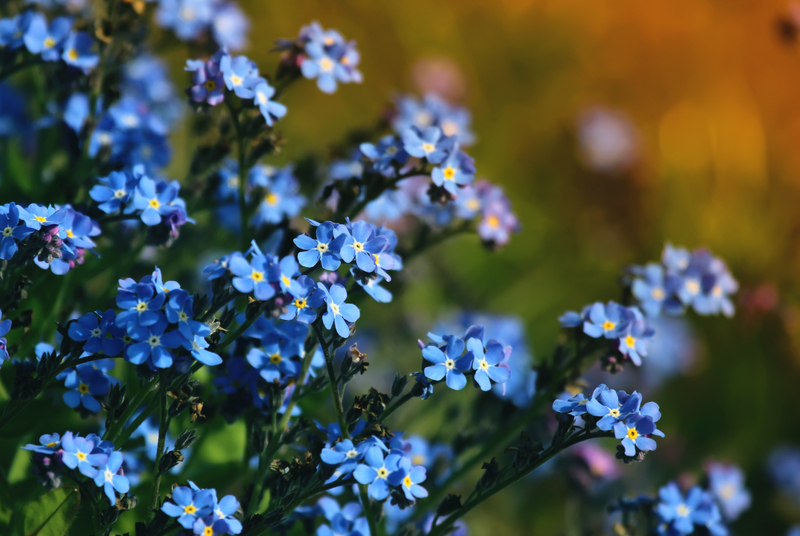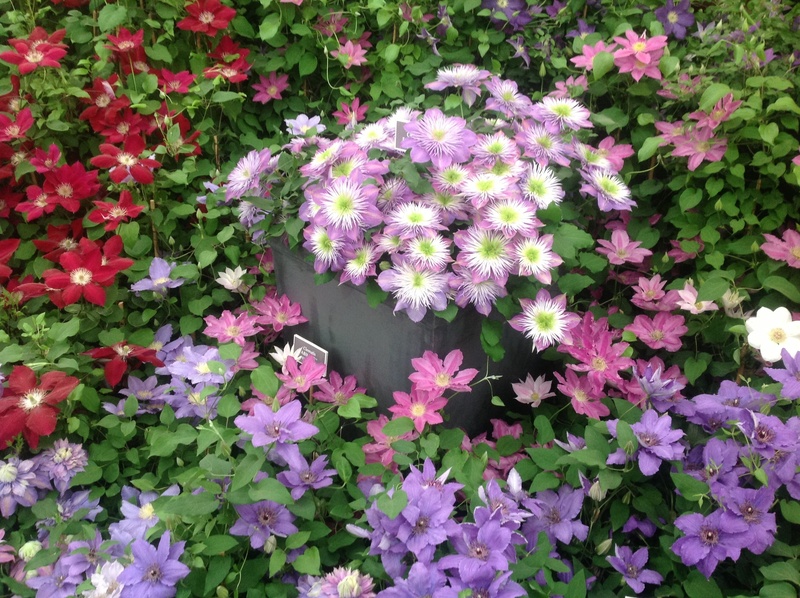Starting Your Garden Right with These 9 Beginner Tips
Posted on 03/07/2025
Starting Your Garden Right with These 9 Beginner Tips
Dreaming of a vibrant, thriving garden but not sure where to start? The journey of starting your garden need not be overwhelming. Whether you are envisioning lush flower beds, fresh vegetables, or fragrant herbs, following proven gardening tips and techniques lays the groundwork for success. In this comprehensive guide to beginner gardening, we cover nine essential tips, curated for anyone looking to transform a plot of earth into a flourishing sanctuary.
1. Choose the Right Location
Location is everything when establishing your first garden. Understanding the needs of your plants and your site's conditions is crucial for garden success.
Assess Sunlight and Shade
- Monitor sun exposure in your yard: Most vegetables and many flowers need at least 6-8 hours of direct sunlight daily.
- Identify shady spots and save them for shade-tolerant plants, such as hostas and ferns.
When starting your garden, observe your desired plot over the course of a day. Does the area flood during rain? Is it exposed to harsh winds? These factors can affect what plants will thrive.

2. Understand Your Soil
Soil is the foundation of any successful garden. Well-prepared soil gives roots the nutrients and structure they need to grow strong.
Test Your Soil
- Use an inexpensive soil test kit to check pH levels and nutrient balance.
- Most garden plants prefer slightly acidic to neutral soil (pH 6.0-7.0).
Amend and Improve
- Work in organic matter such as compost or well-rotted manure to boost fertility, structure, and drainage.
- If your soil is heavy clay or sand, organic materials make a world of difference.
3. Start Small and Expand Gradually
Starting your home garden right doesn't mean going big from day one. Focus on a manageable plot to avoid feeling overwhelmed and to give your initial plants the attention they deserve.
- Begin with a bed that is 4x8 feet or smaller, or use a few large containers if space is limited.
- Concentrate on a handful of easy-to-grow plants (herbs, lettuce, tomatoes, marigolds) before expanding.
Benefits of Starting Small
- Less weeding and watering required.
- Success builds confidence--as you learn, you can develop your gardening skills and grow your space.
4. Select the Right Plants for Your Area
Not every plant will thrive in every garden. Knowing your hardiness zone and choosing suitable plants will set you up for success from the start.
Tips for Choosing the Best Plants
- Check your USDA Hardiness Zone and select plants accordingly.
- Visit local nurseries--they stock varieties well-suited to your region.
- Start with easy-to-grow favorites for beginners, such as basil, cherry tomatoes, zinnias, or sunflowers.
Pay attention to plant tags which specify sunlight needs, water requirements, and mature size. This information helps ensure each plant has its best chance to thrive.
5. Plan Your Garden Layout Wisely
How you arrange your plants makes a big difference in their health and productivity. Good planning optimizes space, sunlight, and airflow, minimizing problems like disease and overcrowding.
Key Garden Design Tips
- Space plants according to recommendations. Crowding can lead to disease and poor yields.
- Think vertically--sturdy trellises or cages save space and support climbing crops (cucumbers, peas, beans).
- Group plants with similar water and sun needs together for ease of care.
- Leave paths or stepping stones to access every part of your garden.
6. Learn How and When to Water
Proper watering is critical when starting your vegetable or flower garden. Both overwatering and underwatering can stress plants, leading to stunted growth and disease.
Mastering Watering Techniques
- Water deeply, but less frequently, encouraging roots to grow deeper and stronger.
- Early morning is the ideal time to water--leaves dry quickly, reducing disease risks.
- Check soil moisture by sticking your finger 1-2 inches into the soil--if it feels dry, it's time to water.
- Newly seeded beds and seedlings need more frequent, gentle watering.
- Consider drip irrigation or soaker hoses to efficiently deliver water right to the roots.
7. Mulch to Save Time and Water
Mulching is a simple step when you're just beginning your garden, but it brings big benefits:
- Reduces weed growth by blocking sunlight from weed seeds.
- Helps soil retain moisture, meaning less watering is needed.
- Keeps soil temperature stable for healthy root growth.
- Organic mulches break down over time, enriching the soil.
Spread a 2-3 inch layer of shredded bark, straw (for veggies), or leaves around your plants--but avoid piling mulch directly against stems, which can cause rot.
8. Feed and Maintain Your Plants Regularly
Consistent care is what takes your garden from good to great. Learning the best routine for feeding and basic maintenance helps you catch problems before they escalate.
Routine Tasks for Beginning Gardeners
- Fertilize according to plant needs, using natural or organic fertilizers that are gentle for beginners.
- Pinch off dead or diseased leaves as soon as you spot them.
- Stake tall or vining plants early, before heavy growth or fruit develops.
- Check regularly for pests (look underneath leaves!) and act quickly--many bugs can be removed by hand.
- Keep weeds in check to reduce competition for water and nutrients.
Record Keeping
Keep a simple garden journal, noting what you plant and when, any successes or issues, and favorite tips you learn along the way. These notes will become invaluable as your skills grow.
9. Be Patient, Observe, and Enjoy the Learning Process
One of the most important beginner garden tips is to give yourself space to learn. Not everything will go perfectly, but every season brings new insight and growth.
- Observe your plants daily--you'll quickly learn to recognize signs of health or trouble.
- Ask for advice at local nurseries, garden clubs, or online forums.
- Celebrate small victories, like your first tomato or a burst of color from your marigolds.
- Take photos to track progress and remember what works best in your garden.
Gardening is much more than simply putting seeds in the ground. It's a nurturing relationship with the earth, and the joy of watching new life grow is a reward in itself.
Bonus: Tools and Resources For First-Time Gardeners
Investing in basic, quality tools can make all the difference. As you get started, consider including these in your beginner gardening toolkit:
- Hand trowel and cultivator for planting and loosening soil
- Garden gloves to protect your hands
- Watering can or gentle hose attachment
- Pruning shears for trimming
- Stakes or tomato cages
- Soil test kit for ongoing analysis
Many community gardens offer resources and workshops for new gardeners. Check with your local cooperative extension office for free advice and soil tests.

Frequently Asked Questions: Starting Your Garden Right
How do I know what to plant first as a beginner?
Start with reliable, easy-to-grow varieties suited to your region. Leafy greens, herbs, radishes, zucchini, and marigolds offer quick success and require minimal fuss.
Do I need organic soil and fertilizers to succeed?
Organic gardening is great, but what matters most at the start is healthy, fertile soil with balanced nutrients. As you become more confident, you can adjust your approach to include more organic solutions.
How often should I water my new garden?
Water needs depend on your climate, soil, and plant types. As a rule, check the soil daily and water deeply when the top inch feels dry. Mulching helps reduce how often you'll need to water.
What's the best way to control garden pests naturally?
Monitoring is key. Many pests can be controlled by handpicking, strong water sprays, or using barriers like row covers. Encourage beneficial insects like ladybugs and lacewings for natural pest control. Avoid chemicals unless absolutely necessary.
Conclusion: Grow Your Best Garden from the Start
Starting your garden right may seem daunting at first, but these key tips for beginners will guide you every step of the way. Focus on the fundamentals: finding the right spot, building healthy soil, choosing manageable plants, and giving them consistent care. Remember, every garden--no matter the size--offers a valuable opportunity to connect with nature.
Embrace the process, experiment, and enjoy the rewards of watching your garden come to life. With patience, passion, and these nine beginner garden tips, you'll lay the foundation for a vibrant, flourishing retreat for years to come.
```

